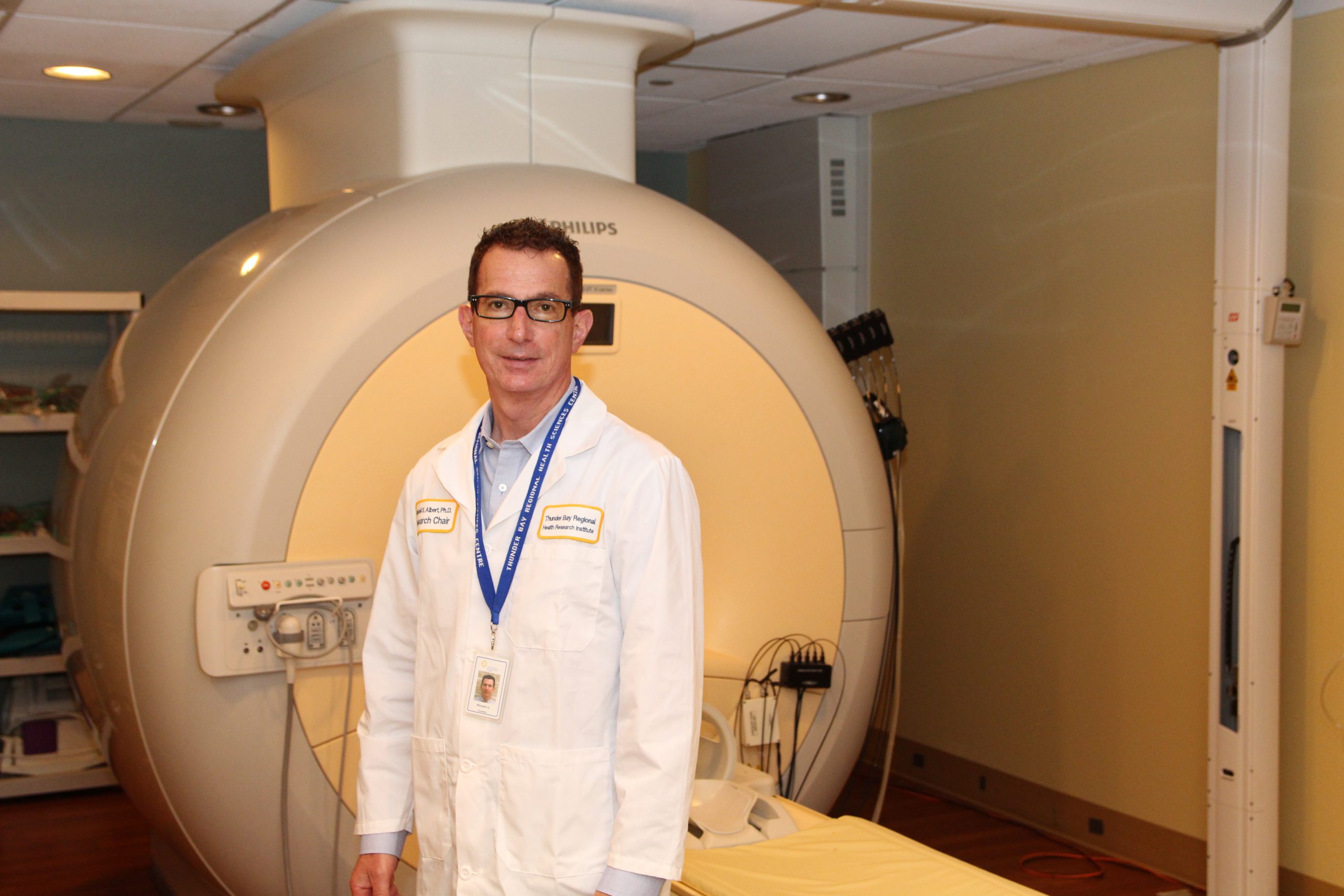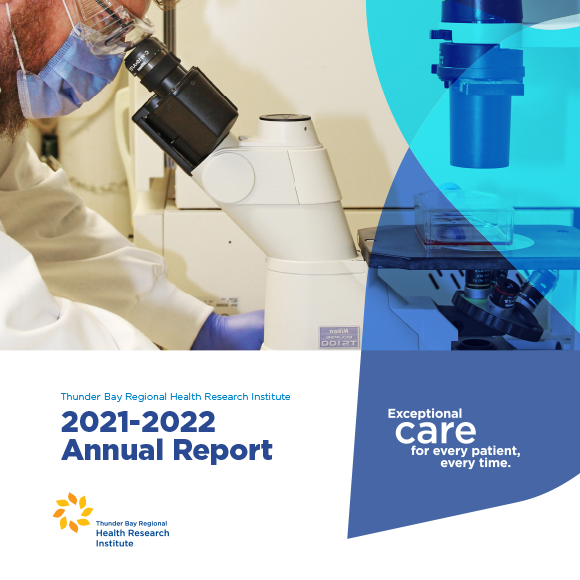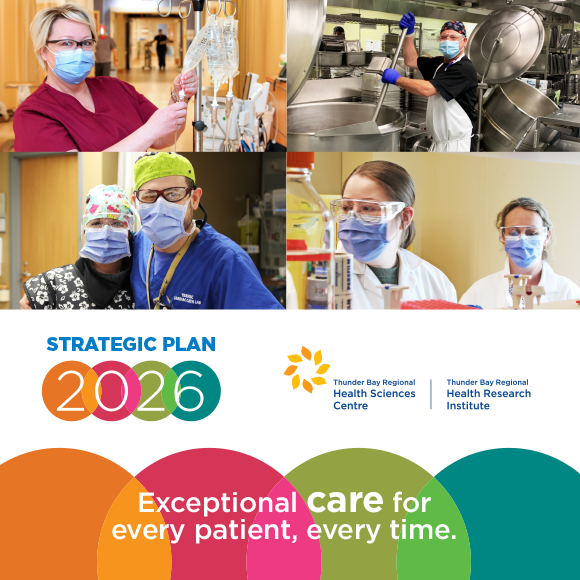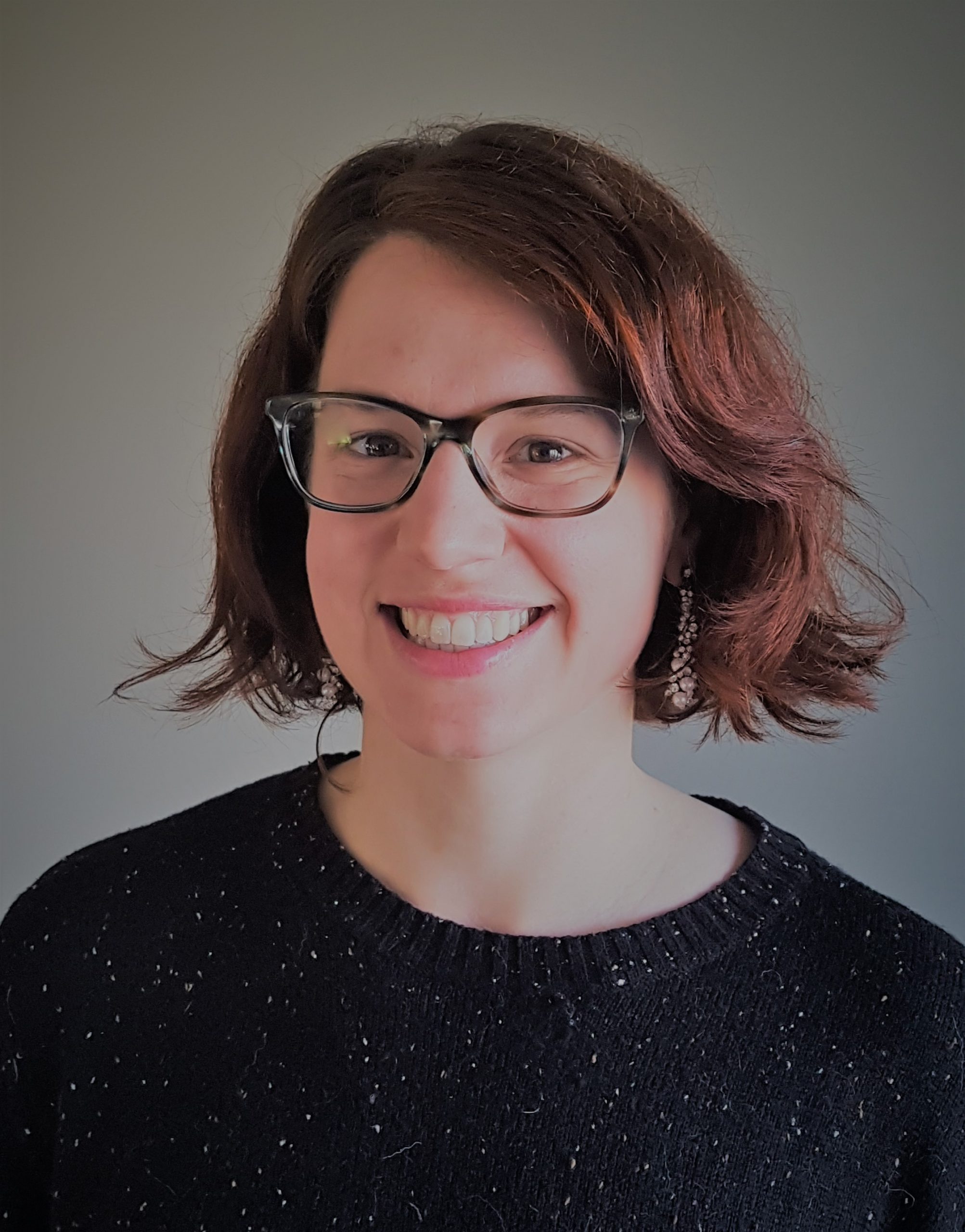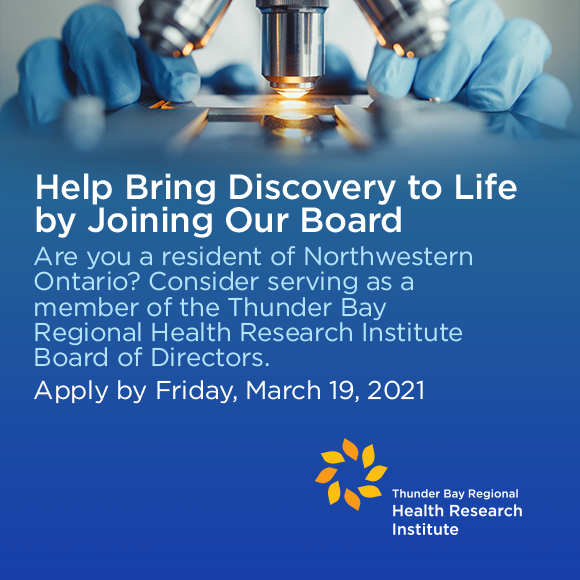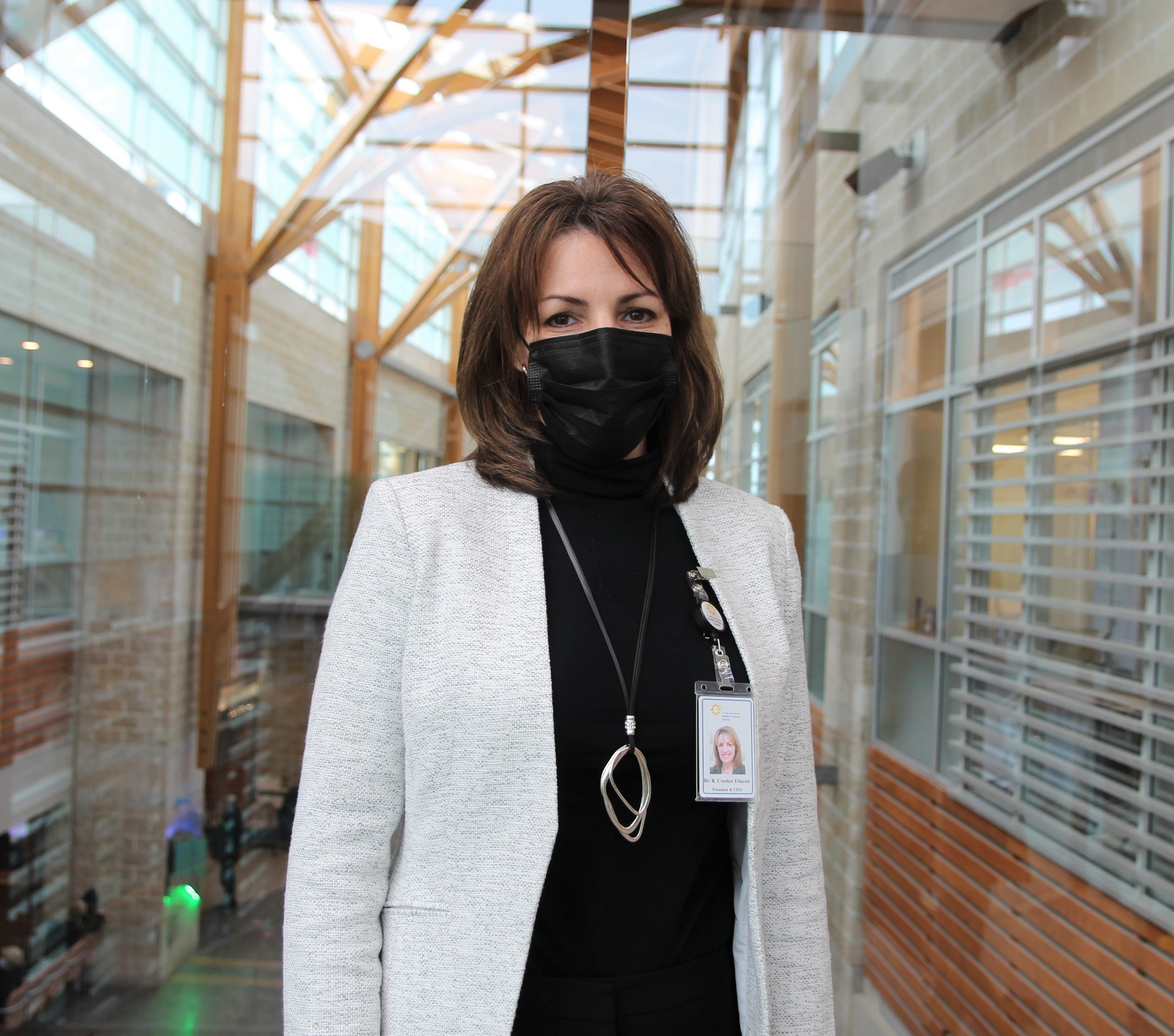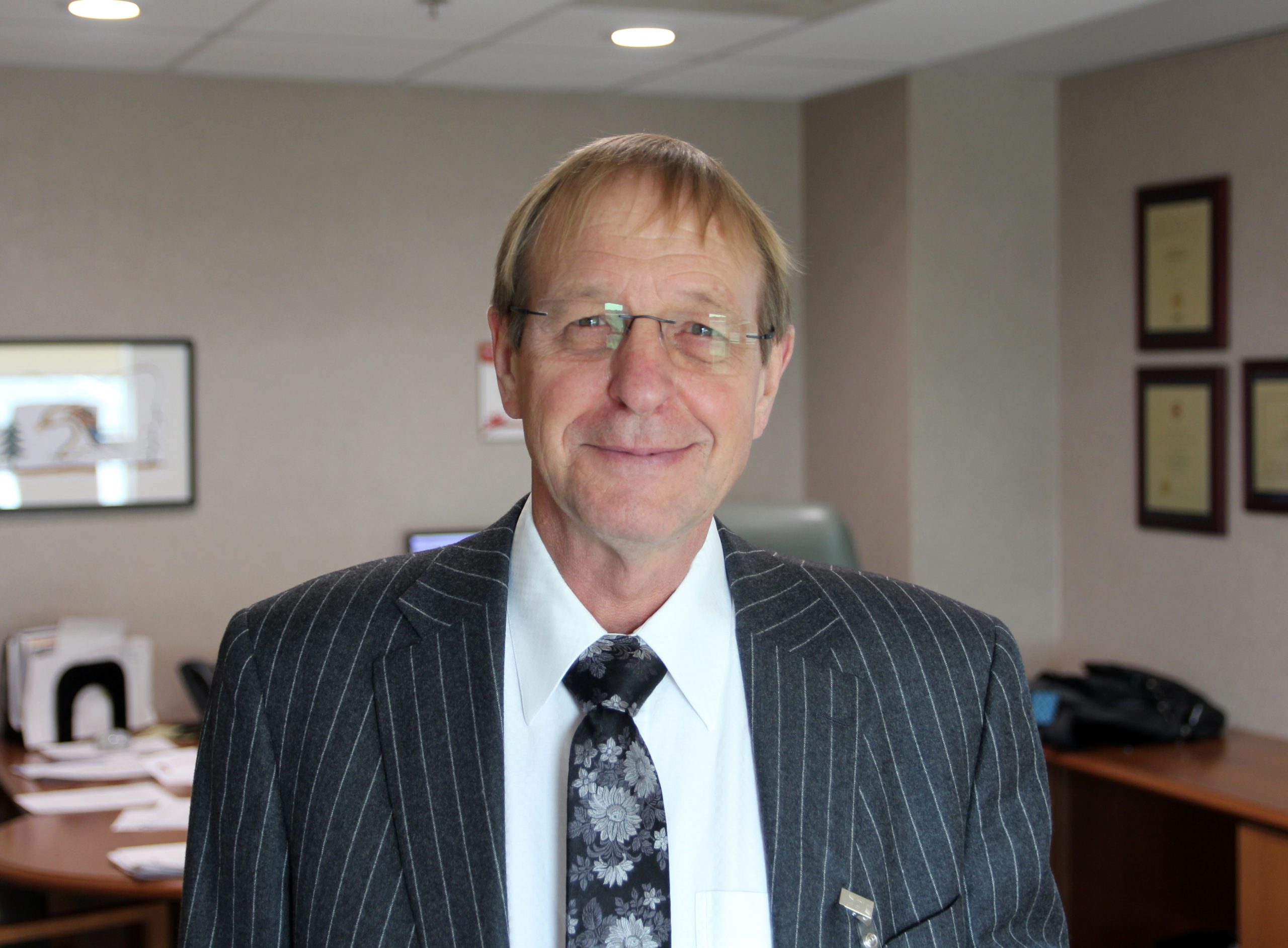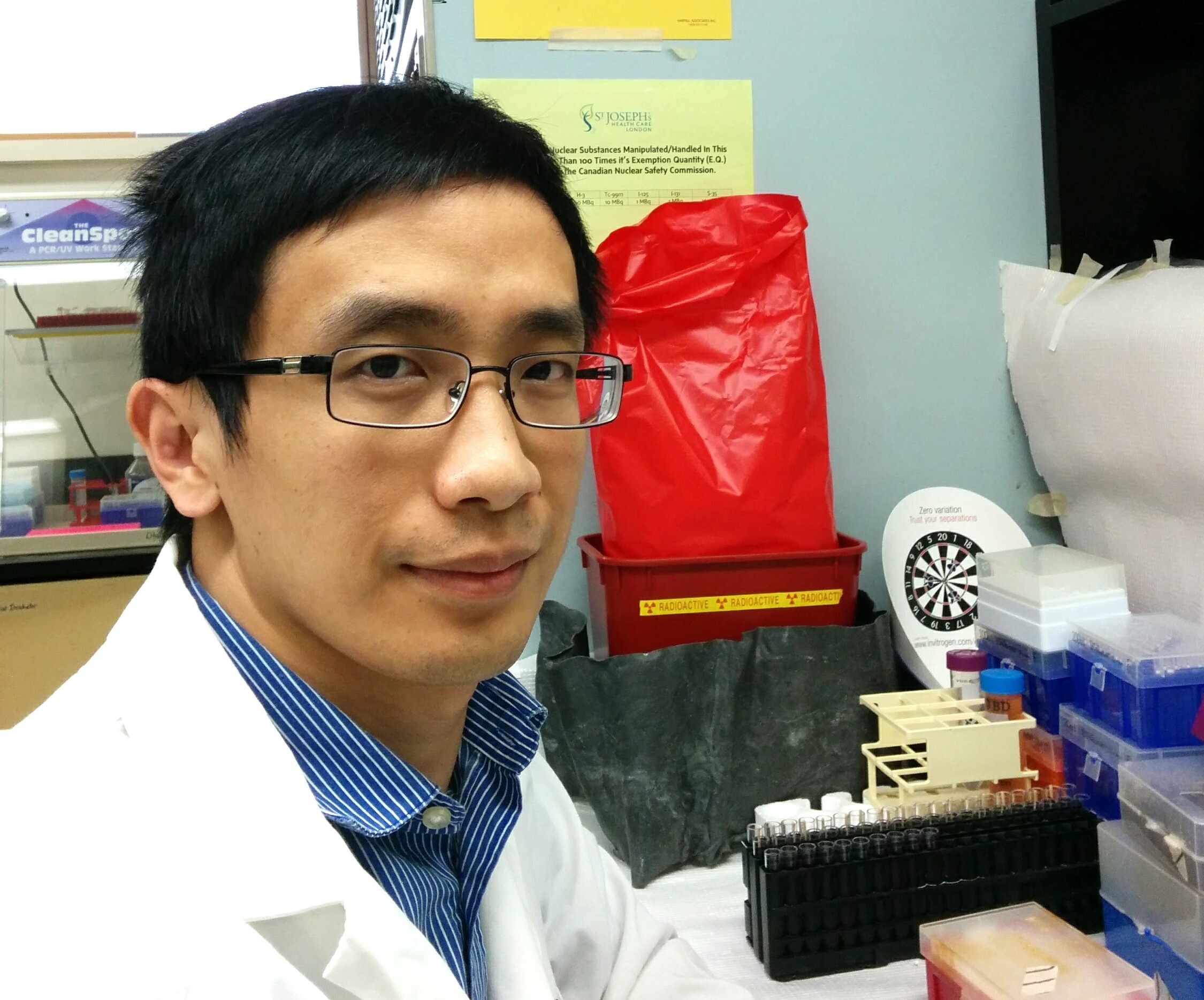I write to you today with so many emotions. Pride. Nostalgia. A heavy heart. But mostly, I feel a tremendous sense of gratitude.
On November 20, 2020, I will officially retire as a senior health care leader and as President and CEO of our Hospital and CEO of the Health Research Institute. It seems like yesterday that I arrived in Thunder Bay, excited to take on a new challenge to lead one of the newest academic health sciences centres in Ontario and its blossoming health research institute. That moment was the culmination of a wonderful career and the crowning of a journey of a lifetime; it provided me with the opportunity to attract and mentor an outstanding group of senior leaders and to work alongside so many skilled and dedicated health care professionals and support staff. I take this opportunity to share the following reflections with the community I served for the last five years.
I’m very proud of our many accomplishments together these past 5 years. These include:
- the development and expansion of several regional clinical programs that foster safe, quality, specialized care closer to home;
- successfully advocating with the Ministry of Health for additional base funding allocation given our impressive performance as compared to our peers;
- opening Transitional Care Units at Hogarth Riverview Manor to provide a more adequate care setting for our Alternate Level of Care patients;
- organizational restructuring that brought, among other innovations, the creation of a Senior Director, Indigenous Collaboration position to engage and partner with Indigenous leaders and communities to have a better grasp of their health priorities, or the creation of a Patient Flow department that allowed us to improve significantly our performance for wait times of admitted patients in Emergency and our average length of stay;
- the integration of the Northwest Health Alliance that allowed for the creation of a regional senior leadership role to support integration and transformation and the creation of a Regional Chief Information Officer role, to support the renewal of all Northwest Ontario hospitals health information system;
- actively engaging in “smart health” research; and
- an accreditation with distinction award from Accreditation Canada.
These are only a small fraction of our accomplishments. They were only possible thanks to your guidance as a cohesive Board, and to the dedication, expertise and will of our staff to imagine and try new avenues to deal with the challenges our Hospital and Health Research Institute must tackle every day. Without all of you, none of this would have been possible.
Dr. Rhonda Crocker Ellacott, as your new President & CEO will now lead you through the development of a new strategic plan and health system transformation. Her health system leadership experience, as well as her many accomplishments such as championing Patient and Family Centred Care, will be invaluable to the Hospital and the Institute. Furthermore, Rhonda brings specific knowledge of and passion for Northwestern Ontario that make her the ideal person to inspire and guide ongoing innovation in health research at our Hospital and Health Research Institute.
Rhonda inherits an extremely talented and knowledgeable senior leadership team and a dedicated Board. Our skilled and knowledgeable senior leaders provide strategic guidance to achieve safe quality care experiences and outcomes for patients and their care partners. Under their combined leadership and expertise, I am confident that our Hospital and Health Research Institute clinical, academic and scientific mission will evolve and thrive.
This will be an emotional transition, but I am looking forward to the next phase of my life. This is the first time I do not have a clear sense of what the future holds for me, but I look forward to spending time with my loved ones, here in Thunder Bay and in Québec.
Until we meet again.
Je vous écris aujourd’hui avec tant d’émotions: fierté, nostalgie, le coeur gros. Mais surtout, je ressens un immense sentiment de gratitude.
Le 20 novembre 2020, je prendrai officiellement ma retraite en tant que cadre supérieur du système de santé canadien et comme président directeur général de notre hôpital et directeur général de l’institut de recherche. Je me sens comme si j’étais arrivé hier à Thunder Bay, enthousiaste à l’idée de relever un nouveau défi en dirigeant l’un des plus récents centres universitaires en sciences de la santé en Ontario et son institut de recherche en plein essor. Ce moment a été le point culminant d’une merveilleuse carrière et le couronnement d’une vie consacrée à cette vocation; ça m’a permis d’attirer et de guider un groupe exceptionnel de hauts dirigeants et de travailler aux côtés de tant de professionnels de la santé et de personnel de soutien si compétents et dévoués. Je profite de cette occasion pour partager les réflexions suivantes avec la communauté que j’ai servie pendant les cinq dernières années.
Je suis très fier des nombreuses réalisations que nous avons accomplies ces cinq dernières années, dont notamment:
- le développement et l’expansion de plusieurs programmes cliniques régionaux qui supportent l’offre de soins spécialisés plus sûrs et de qualité localement;
- la représentation efficace auprès du ministère de la santé pour l’octroi d’un financement de base supplémentaire, compte tenu de nos performances impressionnantes comparativement à nos pairs;
- l’ouverture d’unités de soins de transition au manoir Hogarth Riverview afin d’offrir un milieu de vie plus adéquat à nos patients requérant un autre niveau de soins;
- une réorganisation qui a entraîné, entre autres innovations, la création d’un poste de directeur principal de la collaboration avec les autochtones, afin de s’engager et de s’associer avec les dirigeants et les communautés autochtones pour mieux comprendre leurs priorités en matière de soins de santé, ou la création d’un service de navigation des soins aux patients qui nous a permis d’améliorer considérablement nos performances en matière de temps d’attente des patients admis aux urgences et de durée moyenne de séjour hospitalier :
- l’intégration de la Northwest Health Alliance qui a permis la création d’un poste de direction régionale pour soutenir l’intégration et la transformation, et la création d’un rôle de chef régional des systèmes et technologie de l’information, pour soutenir la modernisation du système d’information de la santé de tous les hôpitaux du nord-ouest de l’Ontario;
- le développement accéléré de la recherche sur l’ »intelligence artificielle en santé” ; et
- l’octroi d’une cote d’agrément avec distinction de la part d’Agrément Canada.
Ce ne sont là qu’une petite partie de nos réalisations. Elles ont été rendues possibles grâce au soutien d’un conseils d’administration cohésif, ainsi qu’au dévouement, à l’expertise et à la volonté de notre personnel d’imaginer et d’essayer de nouvelles façons de relever les défis auxquels notre hôpital et notre institut de recherche doivent faire face quotidiennement. Sans leur appui, rien de tout cela n’aurait pu se réaliser.
Dr Rhonda Crocker Ellacott, en tant que nouvelle présidente-directrice générale, guidera désormais les destinés de l’hôpital et de son institut de recherche dans l’élaboration d’un nouveau plan stratégique et dans la transformation à venir du système de santé. Son expérience et son expertise en matière de direction du système de santé, ainsi que ses nombreuses réalisations, telles que la défense des soins centrés sur le patient et la famille, seront d’une valeur inestimable pour l’hôpital et l’institut. De plus, Rhonda apporte des connaissances spécifiques et une passion pour le nord-ouest de l’Ontario qui font d’elle la personne idéale pour inspirer et guider l’innovation continue dans la recherche en santé à notre hôpital et son institut de recherche.
Rhonda hérite d’une équipe de direction extrêmement talentueuse et très habile et d’un conseil d’administration dévoué. Nos cadres supérieurs extrêmement compétents et expérimentés continueront de prodiguer leurs conseils stratégiques afin d’assurer à nos patients et leurs proches aidants des expériences de soins sûres et de qualité. Sous leur direction éclairée et judicieuse, je suis convaincu que les missions cliniques, académiques et scientifiques de notre hôpital et de son institut de recherche évolueront et prospéreront.
Ce sera une transition émotive, mais je suis anxieux d’entreprendre la prochaine phase de ma vie. C’est la première fois que je n’ai pas une idée précise de ce que l’avenir me réserve, mais je me réjouis à l’idée de passer du temps avec mes proches, ici à Thunder Bay et au Québec.
Au plaisir, sait-on jamais, de se recroiser.

